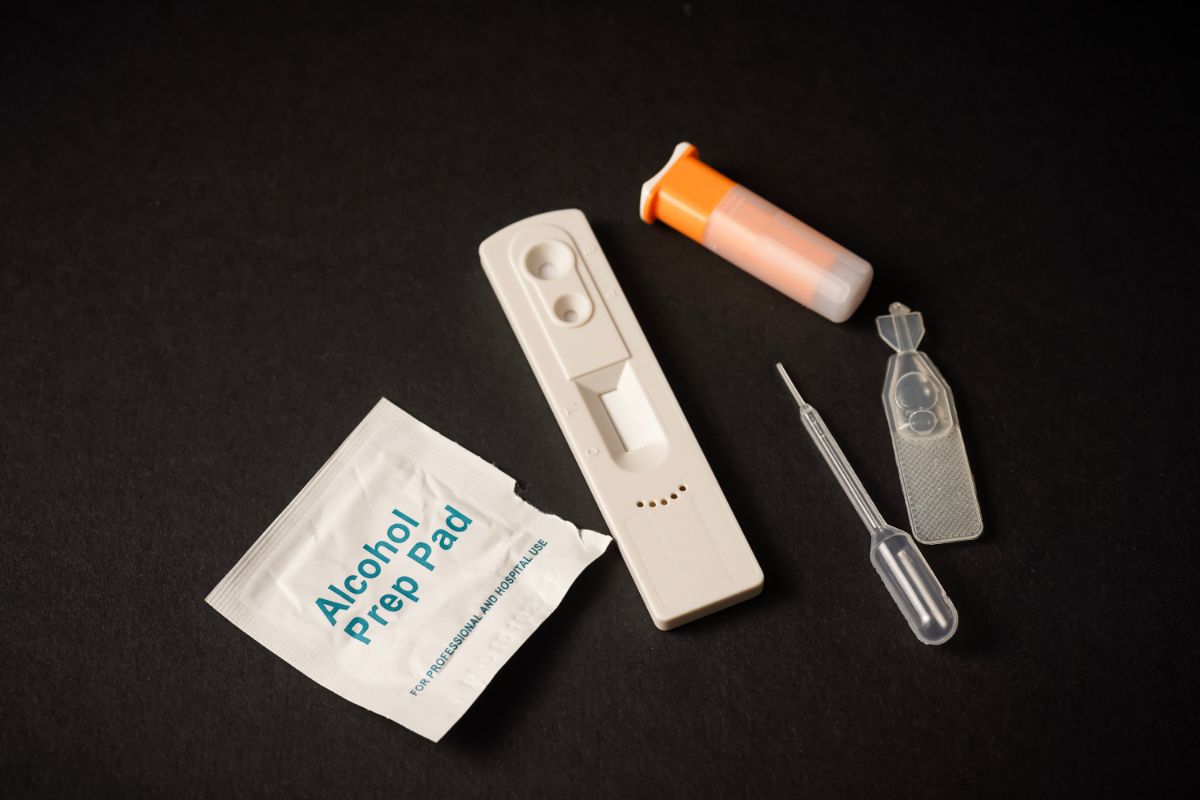The amount of HIV in a body is known as a viral load, but effective HIV treatments work to effectively suppress the amount of HIV in your body. If you’re new to learning about HIV, you might be wondering: Can you pass on HIV when undetectable?

In this article, I will cover some key information on HIV, including whether you can pass on HIV when undetectable and what this means if you’re living with HIV. Let’s get started.
Can You Pass On Hiv When Undetectable?
No, a person cannot pass on HIV when they have an undetectable viral load in their body. If you’ve become undetectable thanks to effective treatment, this doesn’t mean that you’re cured of HIV. This comes down to the fact that if a person stopped their treatment, their HIV would return and become detectable again.
That being said, having an undetectable viral load therefore means that there isn’t enough HIV in your bodily fluids to pass HIV on. This means that a person isn’t infectious, and therefore can’t pass HIV onto others.
What Does This Mean For Someone With Hiv?
It’s important to recognize that ‘Undetectable = Untransmittable’ (U = U) has been a revolutionary finding for many people living with HIV. It means that if you are receiving effective treatment for HIV and become undectable, you won’t be able to pass on HIV through sex, even if you don’t use a condom with your sexual partner.
Recognizing that U = U is particularly useful information for couples that are hopeful to become parents one day. In this case, using a condom isn’t a suitable choice. As a result, rouples in which one person is HIV negative and the other has undetectable HIV can have unprotected sex in order to conceive a child.
That being said, depending on where you are in the world, the law on HIV may not be up to date with these scientific findings. In some parts of the world, sex without the use of a condom (see also ‘Do Condoms Always Prevent HIV Transmission?‘) is a criminal offence if you don’t disclose your HIV status, regardless of the fact that transmission isn’t possible when HIV is undectable.
For this reason, you should always find information on the specific country that you’re visiting for up to date information to ensure that you are covered and are being as safe as possible.
How Can You Explain This To A Sexual Partner?
There is naturally a lot of stress and anxiety around the topic of sex when you’re someone that is living with HIV, and if you’re a partner of someone living with HIV.
Explaining U=U to your partner is likely to be beneficial in easing their mind and worries when it comes to having sex. If you’d previously been using condoms as a means of preventing transmission, you might decide together that it’s no longer necessary thanks to U=U.
Depending on your partner, it might take a while for your partner to accept the U=U findings and recognize it as preventing HIV transmission if they are HIV negative.
Some individuals may even reject or deny the accuracy of the scientific research altogether. Everyone is different, and some people may take longer to accept what they are being told out of fear.
If this is the case, they might find it reassuring to be directed to information resources that better explain the accuracy of U=U. Despite sharing these resources, it’s important to note that some people may still not accept that U=U, and may never come around to the idea.
In this scenario, it is important to strike the right balance between taking care of yourself and providing your partner with accurate information and resources that help them.
The fact remains that with an effective treatment, having HIV doesn’t mean what it used to mean. However, this doesn’t automatically mean that the narrative around HIV has changed.
Although it is changing, there’s still a lot of people that fear it and there are still laws that fuel this fear, so it’s important to recognize this and have patience with the situation as well as your partner.
A Note About Sexually Transmitted Infections (STIs)
It’s essential that you keep in mind that although effective HIV treatment will protect your partner from HIV transmission, it won’t protect either of you from any sexually transmitted infections (STIs).
As a result, ensuring that you use condoms with new sexual partners, and partners that you’re not in a committed relationship with is recommended for your health. This is true regardless of whether you’re HIV negative or positive.
In addition to this, regular sexual health check-ups are essential in general, not just if you’re HIV positive. A concern is that certain STIs can lead to an increase in viral load. It’s important to know that this can happen to people living with HIV who are not taking treatment. For example, syphilis has been known to double your viral load.
That being said, if you follow your HIV treatment, catching an STI won’t change your viral load from ‘undetectable’ to ‘detectable’.
It’s also important to mention that effective treatment will work to prevent you transmitting HIV, even if you have other STIs. It’s also worth knowing that people who are HIV-negative but have an STI are at a greater risk of contracting HIV.
However, provided you are using condoms with sexual partners that you’re not in an exclusive relationship with, and are getting regular sexual health checkups, the risk of this occurring is minimized.
In Summary
No, if you’ve got an undetectable viral load, you cannot pass on HIV as there is not enough of it in your body to pass it to someone else through sex. I hope this article has been helpful, and has given you a better understanding of HIV and whether you can pass on HIV when undetectable. Be sure to save this article to refer back to in the future should you feel confused about anything I’ve discussed.
- Understanding Male Reproductive Health: A Complete Guide - February 2, 2025
- Simple Healthy Skin Habits for Radiant Skin - December 6, 2024
- Unlocking the Connection Between Nutrition and Mental Health - December 3, 2024




![Prenatal HIV Transmission What Is Perinatal Hiv And When Does It Occur? [Explained]](https://alphanutrition.com/wp-content/uploads/2022/08/What-Is-Perinatal-Hiv-And-When-Does-It-Occur-Explained-150x150.jpg)



